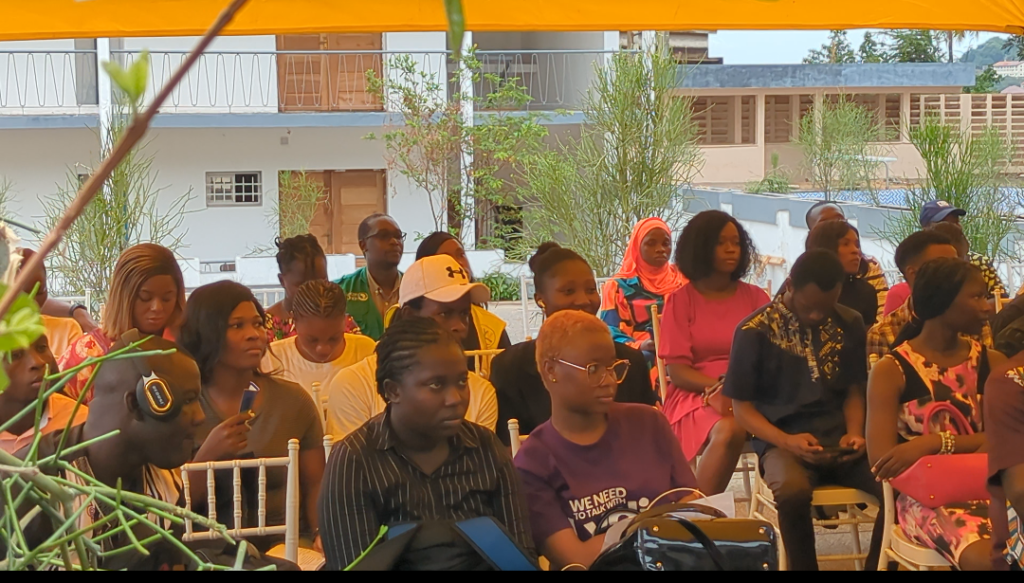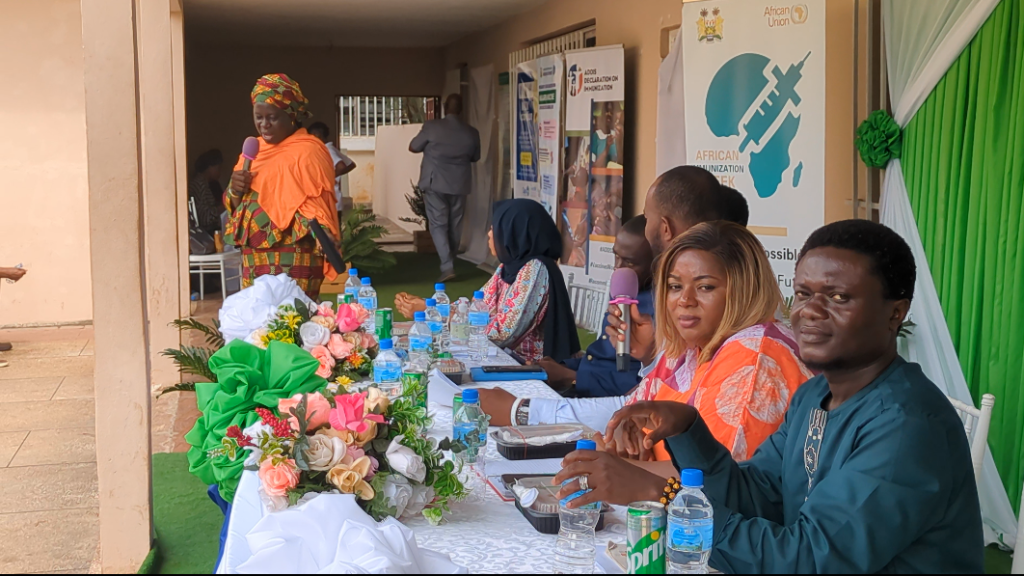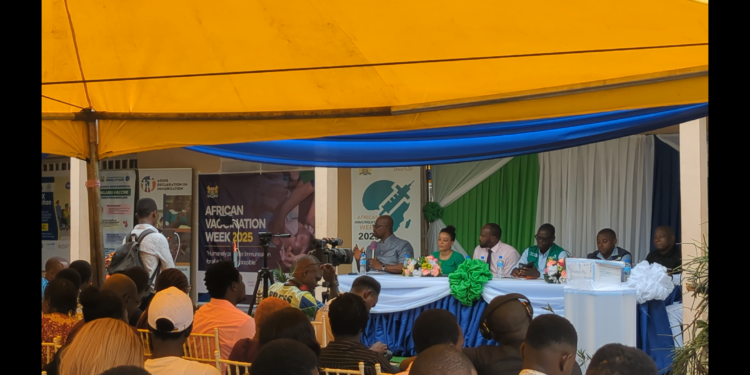By Kemo Cham

Young people must use their influence as drivers of change to promote vaccination, experts and policy makers said on Tuesday.
The youth can be a critical voice in the fight against mis and disinformation, which remains major obstacle to vaccination, considered as one of the most potent healthcare interventions, officials from government and its development partners in the health sector said at a youth vaccine dialogue event.
“There is nothing of the future we can done without young people involved,” said Alleluia Delphine Dusabimana, a senior programmes officer with the African Union Commission’s Campaign on Accelerated Reduction of Maternal Mortality in Africa (CARMMA).
The Youth Vaccine Dialogue which was held in the Brookfield campus of the Milton Margai Technical University (MMTU) was the first in a series of activities organised as part of the commemoration of the African Vaccine Week 2025.
The week, observed annually during the last week of April (24 to 30), is a regional initiative led by the World Health Organization (WHO) to strengthen immunization programs across the continent. It is held as part of World Immunization Week. It aims to increase awareness of the importance of every person’s need and right to be protected from vaccine-preventable diseases, promoting equitable access to life saving vaccines, the organizers said in a media guide issued ahead of the event.
The youth dialogue brought together youth leaders, health advocates, and partners to discuss strategies for increasing vaccine uptake and addressing challenges in immunization efforts. It included a panel discussion and a Townhall session. The aim, according to the Ministry of Health, was to amplify the voices of young people in the country, exploring their pivotal role in advocating for equitable vaccine access and building a healthier nation.
This year’s commemoration of the African Vaccine Week is being held on the theme: ‘Immunization for All is Humanly Possible”. It takes place on the backdrop of the global outbreak of Mpox, which has impacted Africa the most. Sierra Leone, which declared its first case in January 2025, has seen a huge flare up of the virus, prompting calls for adherence to preventive measures.
The government last month rolled out a nationwide vaccination drive targeting vulnerable members of the population. But officials have expressed concern about the effect of mis and disinformation on uptake of the life-saving intervention.
Harold Thomas, Manager of the Health Education Division in the Ministry of Health, who chaired the opening ceremony of the event, said the theme challenges society to break down barriers in efforts to promote vaccine acceptance.
“Immunization for all is not only possible but it is also necessary,” he said.
Dr Clement Daam, Senior Country Representative of the Africa Centers for Disease Control and Prevention (Africa CDC) in Sierra Leone, added: “The theme reminds us all that collective action can achieve the needed universal health security.”
Vaccines have saved an estimated 154 million lives over the past 50 years, reducing infant mortality by 40% and protecting people from more than 30 deadly diseases, according to WHO.
In 2024, the global community celebrated 50 years of the Expanded Programme on Immunization. That milestone, says the global health agency, serves as a reminder of the extraordinary progress made – and the work that remains. It warns that despite the progress made, far too many people in the Africa region in particular still lack access to essential vaccines.
WHO data show that one in five children on the continent remain under-vaccinated. In 2023 alone, 6.7 million children received no vaccines at all, and these are referred to as the “zero-dose” children. Consequently, diseases like measles outbreaks persist, while vaccine-derived poliovirus continues to pose a threat.

Sierra Leone was selected by the African Union to host this year’s African Vaccination Week in recognition of progress made by the country in terms of vaccination coverage.
In 2023, for example, 90 percent of children aged 0-11 months received all doses of DTP, containing pentavalent vaccines. Also, at least 61 percent of the country’s population received the Covid-19 vaccine.
Officer in Charge at the WHO Country Office in Sierra Leone Dr Robert Musoke, said all these constitute a “big achievement.”And to reach the ultimate goal, he noted, the youth must not be left out.
“Sierra Leone being 60 percent of the population under the age of 25, there is certainly a lot that we can do as youth to protect future generations alongside our leadership in promoting vaccine not only as followers but also as partners and the future generations leaders,” he said.
Dr Desmond Maada Kangbia, Manager of the Expanded Programme on Immunization at the MoH, hailed international and local partners for their role in getting Sierra Leone to this level of progress in immunization coverage.
“Over the years we used to hear of diarrhoea disease in children, but because of vaccines, we are not hearing much of it. We used to hear of tetanus, there has been a drastic reduction of neonatal tetanus because of the vaccines we give to pregnant women. So immunization is very important,” said Dr Kangbai.






















